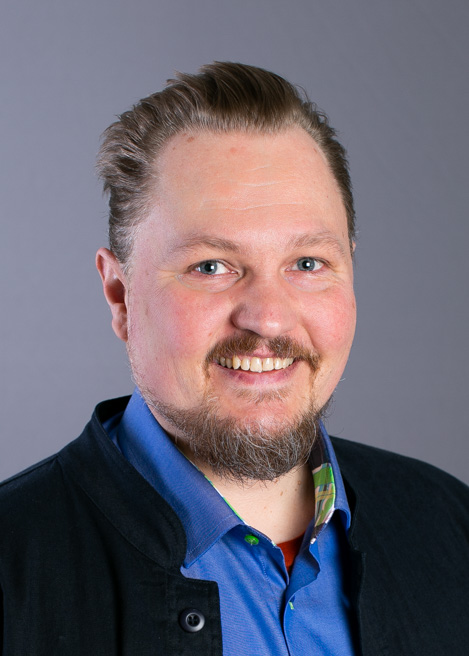Energy and Electrical Engineering, Bachelor of Engineering
Energy is a key part of modern life. Engineers who understand how energy systems work — and how to make them more sustainable — are needed more than ever. The Bachelor’s degree in Energy and Electrical Engineering gives you the tools to build a career in a growing and important field — helping to shape the future of energy.

Degree title
Bachelor of Engineering
Scope and duration
Tuition fees
12 000 € for non EU / EEA citizens
Read more
Type of studies
Location
Teaching language
Engineering expertise responds to the energy transition
Energy is a key part of modern life. We need electricity to power homes, factories, transport, and digital systems. At the same time, the world is moving towards cleaner and smarter energy solutions. Engineers who understand how energy systems work — and how to make them more sustainable — are needed more than ever.
This programme gives you strong skills in both electrical engineering and energy technologies. You will learn how electricity is produced, used, and controlled, with a special focus on renewable energy.
Main topics include:
- Electrical Energy Systems: How electricity is generated and delivered through power grids.
- Renewable Energy: Solar, wind, hydro, and bioenergy — how these systems work and how they are used in real life.
- Electric Drives: How electric motors and control systems work in machines and vehicles.
- Energy Management Systems: How to monitor and improve energy use in buildings and industry.
- Energy Markets: How energy is traded and how energy resources can participate to system balancing via reserve markets.
You will work on practical projects, use modern lab equipment, and study real-world cases. The programme prepares you for jobs in both Finnish and international companies.
Study contents
The scope of the Bachelor of Engineering degree is 240 ECTS credits. In the degree programme in Energy and Electrical Engineering, your studies consists of following studies:
- Basic studies 75 ECTS
- Professional studies 90 ECTS
- Optional studies 30 ECTS
- Internship 30 ECTS
- Bachelor Thesis 15 ECTS
In the basic studies, you will obtain the foundation for your professional competence and the abilities for higher education studies. These include studies in mathematics and physics as well as in English and Finnish languages.
In the professional studies, you will achieve extensive competences required for working in the fields of energy and electrical engineering. Focus is on modern ways to produce clean energy and manage complex systems with weather-dependent energy sources. Electric drives are emphasized in the studies of electrical energy usage – both as grid connected and battery-driven systems (e.g. electrical vehicles). Understanding real-world projects and their requirements is also one focus area.
In the internship, you can utilize and develop the knowledge from professional studies in the industry. Optional studies allow you to choose courses by your own interest – you can either widen your studies to new areas of interest or deepen knowledge in the energy and electrical engineering.
The degree programme is conducted as full-time studies, which means that studying requires participation in classes on campus and cannot be completed as online studies.
If you have fluency in Finnish you can also study the Bachelor’s degree in Energy Engineering in Finnish. Read more on our Finnish website.
After graduating
After graduation, you can work in many areas, such as:
- Energy companies and utilities
- Electrical design and automation
- Renewable energy projects
- Smart building and energy efficiency solutions
- Technical sales and customer support
- Research and development
- Entrepreneur
Newly graduated engineers in this field are typically employed as design engineers or project engineers. After gaining some experience, they often move to more demanding specialist tasks or manager positions.
Skills you’ll gain
Energy
electricity
Renewables
Energy storages
Electric drives
Power electronics
Energy management
Automation
Work & Career
Graduates of the programme work in roles such as:
Designer Engineer
Project Engineer
R&D Engineer
Project Manager
Sales Manager
Checklist for applicants
Applying in Joint Application
Joint application means that you can apply to up to six study programmes with one application form. These six options may include degree programmes from one or several different higher education institutions in Finland.
Checklist before you apply
1
Check the admission criteria: please take a close look the general information on eligibility, application procedure and student selection methods.
2
Take a look at the tuition fees and scholarships: the higher education institutions in Finland collect tuition fees from students outside the EU/EEA area.
Please note also: The Ministry of education and culture is preparing changes in legislation considering application fees for applicants to degree programmes in higher education. Read more about the preparations to introduce application fees.
3
Look at the schedules: make sure to apply and upload attachments on time.
Instructions for joint application: admission criteria and schedules
Apply in Joint Application
You can apply for this degree programme in joint application.
Next joint application period is:
The deadline for application is at 3 pm (Finnish time) on the last day of the application period.
Application forms at Studyinfo
Studyinfo.fi is the national portal for submitting applications.
How many students are selected in this degree programme?
You can find the number of study places offered in joint application to this degree programme at Studyinfo.fi on the degree programme’s page. The number of study places varies from year to year.
In joint application the quota for first-time applicants in this degree programme is 90%, which means that the majority of study places are reserved for applicants applying for their first higher education degree.
Co-operation with educational agents
Turku UAS co-operates with education agencies specialized in international student recruitment.
Separate applications
You can apply to Turku UAS also through separate applications. Application periods and student selection methods are different from joint application procedure.
Tuition fees and scholarships
Tuition fees are charged from students who are not citizens of EU/EEA countries and are accepted to Bachelor’s or Master’s degree programmes conducted in English.
When are studies starting?
If you apply in the spring application periods (first and second joint application), the studies begin in August / September.
If you apply in the autumn application periods (autumn joint application), the studies begin in January.
The starting dates and other information for new students will be published on the New Students guide.
Contact Us
Questions related to admissions: Admission Services
We co-operate with agencies specialized in international student recruitment. See the list of our verified educational partners and agents.
Questions related to studies:
Starting your studies?
Welcome to Turku University of Applied Sciences! Turku UAS is one the leading universities of applied sciences in Finland, home to over 12,000 Finnish and international students. It’s great to have you as part of our community.
Our New Students’ Guide gathers all the information you need to prepare for your arrival in Finland and to get started with your studies. Please read the instructions carefully.
See you on campus or online!
Turku: a Student city
Turku, located in the region of Southwest Finland, is one of Finland’s biggest cities. The bustling lifestyle structure and top class education, culture, and services, as well as the beautiful archipelago, make for a magnetic combination in Turku.


